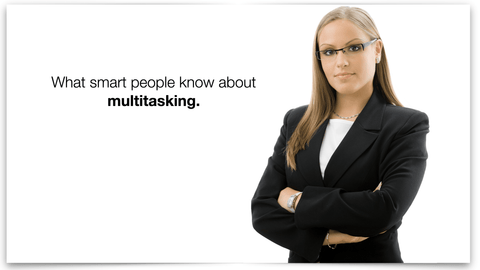A Champion’s Self-Talk
Today’s blog offers winning focus techniques.
Belief is not enough
Building the mental skillsets
Learning the language
Self-Talk fails and corrections
Cues and rituals
Three weeks ago, I blogged about the most powerful technology in the world, language. It's worth reading first if you missed it.

Belief is not enough
First, let’s start with the widely accepted “belief” concept: “You just have to believe it to make it so.” To be clear, this blog is not about belief as it pertains to faith – rather I refer to belief in the context of self-assuredness. I stand firm in my belief, from first-hand experience, that you can tell yourself you believe all you want, but that’s NOT all that is required to make it so.
Standing on the precipice of any endeavor, you need a bit more than mere belief to find success. Being ready to jump at the edge of a cliff with all your belief in tow, will do you little good without a wingsuit or parachute. Gravity will teach you and your belief a very quick lesson.
There are essential qualities needed to be successful in anything you undertake. In this blog, we’ll drill down on one of the most important, most powerful, and most underrated. This is one quality you can use to begin improving your sports performance today. It won’t cost you anything other than your willingness to cultivate learning and change.
As humans, we have forgotten the language that nourishes our souls – the language that cultivates and fortifies our deepest beliefs, and the language that is with us all the time. This is the language of our self-talk. Regardless of the techniques or skills we employ, what we say to ourselves can either get us to the finish line or cause us to fail miserably. Even if you out-train everyone around you, have the best nutritional program, employ the best sports physio and coach, you can still fail if you don’t get your self-talk in order. Hard stop.
Building the mental skillsets
As a tennis professional, it drives me crazy when I watch players hitting only forehands from everywhere on the court. The best forehand in the sport will deliver a one-dimensional game if that is the only skill cultivated. Why would an athlete ever consider training for a one-dimensional anything? It’s painfully obvious. It takes many skills to create a balanced game. And, one of those is the mental skillset.
If you are a tennis fan, you watched the French Open this past weekend. The play was absolutely stupendous. I congratulate Novak Djokovic on his win, of course. However, I commend him for another reason as well – his mental skillset. During his matches, Djokovic didn’t expend extra energy or give up court position to only hit a forehand. He used his well-rounded, balanced skillset.
Djokovic has an impressive fitness level, as do many others in the sport. He can withstand long match play and go the 5-set distance against any other player in the world. You might think that his outstanding fitness is his secret. All his physical training, practicing, stretching, nutrition and stamina won the title for him, right? Well, I expect all of that from Djokovic. After all, he is World No 1. He has proven his physicality and game preparation for some time now.
In this tournament, he showed me something I did not expect from him. In fact, his skill in this area has faltered over the years. In this tournament, Djokovic demonstrated that even though he was down two sets to love (in two separate matches), he could remain completely focused and find a way to win. Djokovic’s ‘newest’ skill shines bright after watching his performance in the French Open. His self-talk was the real strength during this event. It was crystal clear when I watched him play and during non-play that his focus was resolute and dogged. His mental state was calmer, more fined tuned. Hats off, Novak!
Learning the language
Let’s dive into self-talk and learn some simple, specific tips on how to amplify this powerful tool. Sometimes you have to learn (or re-learn) the language of self-talk.
It doesn’t matter if you are a tennis player, golfer, gymnast, runner, or racecar driver. Champions have a way of talking to themselves to maximize their performance. Do all champions do this? Likely not all if they have yet to acquire this skill. A glaring tennis example is John McEnroe whose self-talk was detrimental to him and the sport. John McEnroe had an amazing tennis career in the 1980s attaining World No 1 ranking in both singles and doubles. Without question, he was one of the most gifted players to step onto a tennis court. He is also known for his on-court behavior that was unbecoming of a champion.
Regardless of the titles he won, he never reached his potential. Some of you who remember McEnroe may say he played even better when he got fired up and displayed his temper tantrums. In reality, his outbursts would usually derail his opponents causing them to lose momentum and focus. It’s an effective ploy used by many athletes. McEnroe’s self-talk was deflective, defensive, and destructive. Players like McEnroe with his eruptions and racquet-slamming do not have their self-talk under control. It’s just the opposite – their caustic self-talk controls them. Wonder what McEnroe could have accomplished if he had possessed the skill of positive self-talk?
In vivid contrast to McEnroe, the tennis greats of today like Roger Federer or Rafa Nadal never use such gamesmanship. It is evident in the way they comport themselves on and off the court that they take ownership of themselves, their actions, and their game. These greats respect the sport and respect their opponents. Their internal self-talk has been honed. The champions’ disciplined inner dialogue and belief are melded into a refined and practiced skill. It is a vital part of their repertoire that brings victory time and again.
Many of us as players talk to ourselves on the court. Have you ever observed just how much you talk to yourself during play? We are likely unaware of the habit and its frequency. We need to learn the language of self-talk and harness its power. If we are working toward getting in the “flow” or the “zone”, we must quiet most of this inner chatter.
Self-talk needs to be minimal, pointed, and bring value to our performance. Coach John Wooden, one of the all-time greats, was known to be a man of few words, “Keep the game simple.” We can direct our inner language into an essential skill.
Self-Talk - Fails, and Corrections
Let’s go out on the court and listen to some self-talk and attempt to relearn the language.
Example #1: Beginner player says, “Don’t hit the net.”
Fail:
A player practices hitting forehands. She makes a net error, and the negative body language is apparent. More importantly, she is heard coaching herself. She says to herself, “Don’t hit the net”. It’s a common phrase, and many of us have probably said this or something similar. This mantra is a complete fail in self-talk. The brain focuses attention on the words “hit the net”. Now, if her goal is to hit the net more often, then that’s a perfect statement. It doesn’t matter whether you say, “hit the net” or “don’t hit the net.” Both these statements process the same way in our brains. These words are pulling your attention and focus toward hitting the net.
Correction:
Same scenario as above with the player hitting forehands – with a simple correction. The ball hits the net, but instead, she says a one-word affirmation, “Height”. She is now focusing on hitting the ball with sufficient height over the net. This one word doesn’t clutter the flow state or allow ambiguity. It lets her continue to make positive adjustments as she continues to practice.
Example #2: Advanced player says, “I believe.”
Fail:
This example is a big fail that many players – even advanced players – continue to experience. The self-talk phrase, “I believe, ” can become a choke. Let’s say an advanced player is in a match, and it’s time to change sides. He will be serving at 5-4 after the change-over. As he towels off and gets a drink, he says to himself, “I believe. Right here, right now. I can do this.
I’ll serve this set out.” Sounds good, right? Confident affirmation. Results-oriented. Setting the stage. Wrong. This kind of self-talk is an even more dangerous fail than the one above. And, this distinction of proper self-talk is why many good players blow it. This is the “I believe” that lets you jump off the cliff without a parachute.
Let’s dissect it: The player above focused on a results-oriented approach (fixed mindset) to the match instead of trusting the process (growth mindset). In reality, the player piled on the pressure to get that result. He wrenched his brain out of the present moment (“flow” or “zone”) and hurled himself into the future. His mind has left the court at a critical point and is off in La La Land somewhere. He has set himself up to choke. Further, if he loses his serve, anger will follow, and the match’s momentum will shift. Loss of the set or the match is more likely. Thanks a lot, self-talk.
Correction:
The same player is changing sides. He towels off and gets a drink. My recommended self-talk at this point should go something like this: …………………................... Silence? Yes, that’s right sports fans. The player gets a drink and towels off in peace and quiet without interrupting his focus. It’s called relaxing. Stop talking, babbling, multitasking, and solving all the world's problems. Just shut up and relax. Save your energy. Go to that place of focus and quietly stay there, please!
You are probably thinking, “What? There must be something I should say. I need to tell myself what to do.” If you must say something, use a simple affirmation that relays a universal intention, a tightening of focus. For example, when I walk up to the baseline just before I start my service motion, I use two words: “All-In”.
Just like my practice drills on the court, I practice this self-talk. For me, my self-talk is a reminder that all of my attention and focus converges into the present moment. This helps me keep my body relaxed. I trust the process – the process of training and repetition of hitting my serve over and over again. My mind and body know exactly what to do, and with a little peace and quiet, I can and will do it well.
Don’t get me wrong. The belief in one’s ability is a good thing. Although, real belief is the recognition that through preparation, your ability will be there. Merely stating the affirmation “I believe so I will succeed” is not enough. Belief (substantiated by preparation) coupled with the appropriate self-talk (originating from a mindful place of calm) will magnify the opportunity for success.

Cues and rituals
The first step in developing appropriate self-talk is to start paying attention to just how much you do it. Start by deliberately limiting it. Continue to cull down the chatter dramatically. Choose your language with concise, precise words. Practice this just like you would your forehand or serve. It’s about the process of doing the work consciously and conscientiously so that when you walk out on the court you shift to autopilot. If you still have to constantly coach yourself during play, then your process needs to change. It usually boils down to not enough mindfulness homework.
The examples above using precise words like “Height” or “All-In” work for me because they are part of my rituals. If you follow tennis, you know that Rafa Nadal carefully places his water bottles in just the right place perfectly lined up. That is one of his rituals. A little strange, maybe. Effective, yes – for him. Rafa uses rituals to put himself into a familiar mindset, a comfortable mindset. Pay attention to the lesson here.
Even though I don’t fool with my water bottles like Rafa, I do repeat familiar, comfortable self-talk cues for the same reason. These cues work for me because they draw all my attention to my familiar process. It’s what I do in practice and what I do in match play. No surprises, no changes or babbling required. My self-talk prompts are brief and succinct. They are there when I need them and quiet when I don’t.

Coach’s tip. Try this to start curbing your self-talk. Develop about a half dozen cue statements for yourself. These should be short and simple – and well thought out. Use these consistently in every practice until each becomes a subconscious tool that works effortlessly for you. Stay focused on this process and forget about concentrating on results. Results-driven thoughts and language are ego-driven and can be undesirable. There will be more on this topic in future blogs.
Okay, go get out your notebook and write this down. This is notebook-worthy: You must live with and within yourself. Living an authentic life starts with awakening to the possibility – the need—to observe the inner voice. Be aware of it, yet do not surrender to it. We must intentionally invite our self-talk (our internal language) into our mindful world. Going inside ourselves to do the work takes guts. It’s like swimming out into the vastness of a night's ocean – invigorating, yet formidable. It’s time to jump – all in!
While working with players as a life coach I bring simple, tried-and-tested techniques to light. These are not theories, rather proven methods. My recommendations are straightforward, and they work. My approach and advice will allow a player to cultivate his/her development. If you need help, seek out an expert to teach you. They can accelerate your learning curve.
Next week, I plan to show you how multitasking is keeping you from being your best.
It is my greatest hope that you will implement some tips from our Bio-Cultivating and Neural-Cultivating blogs. Further, it is my hope you will be inspired to pass these learnings along to family and friends. We all have people in our lives who have the desire but lack the accurate information to improve their health. It is frustrating to sift through the bombardment of data and the misinformation in today’s world. It’s no wonder some give up in frustration. I believe that we deserve the healthiest choices that honest modern science can offer. It is my mission to help as many of us as possible get and stay healthy.
As a tennis coach myself, I found the compression industry to be unacceptable for our needs. I set out on a journey to help you and your students. I know we all get beat up. The harder we compete, the more we get injured. All compression is not created equal! At Body Helix, we start with an unapologetic obsession for exceptional quality.
Our design philosophy is to create modern, innovative gear that surpasses that which is offered in the global marketplace. As a privately held, Veteran-owned, North Carolina company we challenge global leaders to elevate their compression game or step aside. It’s compression gear, designed by tennis players, for tennis players.
Be well and stay focused on cultivating your health, your mind, and your solitude. If I can help you further never hesitate to reach out to me.


Move Through It.
Coach Fred.



